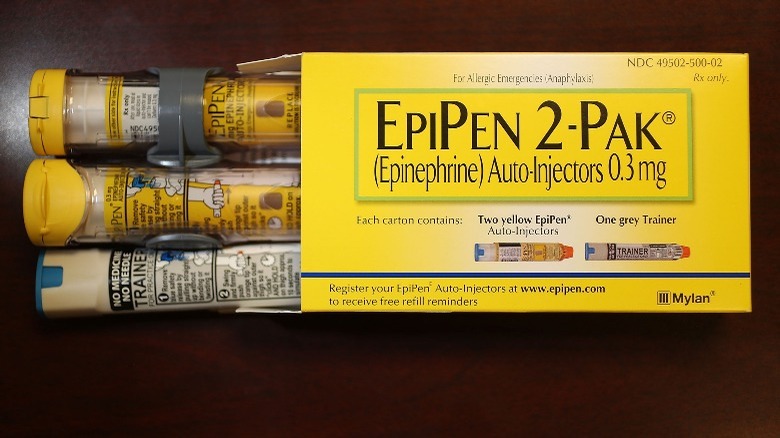You May Be Allergic To The Cold If This Happens To You
Exposure to the cold may result in some health benefits. According to Medical News Today, it may help relieve pain and inflammation. It might even help you get a better night's sleep. According to Healthline, taking a cold shower can boost your circulation and help your muscles recover after working out, although exercise physiologist Zach Carter, CSCS told Cleveland Clinic that he doesn't recommend them. "It's just not a necessary situation to put your body in," he explained.
But other times exposure to the cold can be dangerous. The Centers for Disease Control and Prevention states that both frostbite and hypothermia are potentially threatening conditions. The National Weather Service notes that spending just a half hour in wind chills with a temperature of minus 20 degrees Fahrenheit can cause frostbite. Further, if your body temperature drops below 95 degrees Fahrenheit, you can develop hypothermia. But these aren't the only ways that exposure to cold temperatures can be harmful. Did you know that some people are allergic to the cold?
Cold allergy: symptoms, triggers, and treatment
If you noticed that your skin broke out into hives the last time you took a walk when it was cold outside, you may actually be allergic to the cold, says Mayo Clinic. According to the American Academy of Allergy, Asthma, & Immunology, cold urticaria — commonly known as cold allergy — is a rare and potentially hazardous skin allergy to cold temperatures.
Mayo Clinic further writes that eating or drinking something cold may cause your lips to swell. Sometimes your tongue or throat may swell (via Allergy & Asthma Network). Notably, the allergy may worsen when you try to warm up.
WebMD says that other triggers include infections, insect bites, medication, as well as outdoor sports like swimming, skiing, and mountain climbing. Even a trip to the frozen aisle of your local grocer could cause a reaction.
In extreme cases, your body may have an anaphylactic reaction. Per Medical News Today, you can take antihistamines before exposure to the cold, or take them after your symptoms appear. Additionally, you may want to keep an EpiPen on your person in the event of anaphylaxis. However, your best option may be to avoid your cold triggers altogether.


